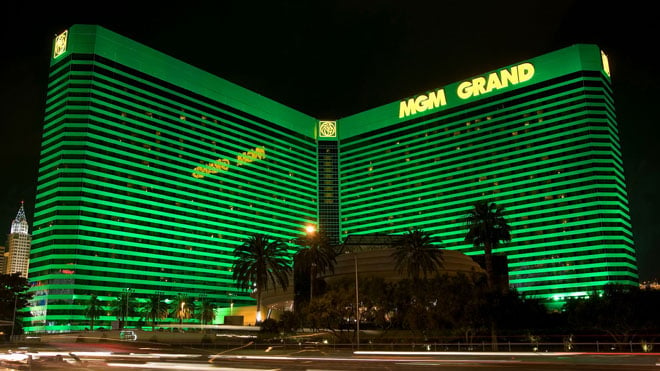MGM and Wynn to Take on Over $1 Billion Each in New Debt
Posted on: November 23, 2014, 08:00h.
Last updated on: November 24, 2014, 01:32h.

MGM Resorts and Wynn Resorts have announced, in separate financial filings, that they are looking to take on over $1 billion each in new debt to help pay for upcoming casino projects in Massachusetts, and in MGM’s case, Maryland.
MGM initially said it wanted to borrow $1 billion to cover the costs of the construction of its $800 million MGM Springfield and $1.2 billion MGM National Harbor development in Maryland, as well as to pay an old debt that matures in 2015, but has since bumped that figure up to $ 1.15 billion. The company is also currently building a $2.9 billion resort on the Cotai Strip in Macau.
Meanwhile, Wynn Resorts said it has already secured a credit line of $375 million, as well a loan of over $875 million to cover some of the costs of its $1.6 billion casino-resort near Boston.
Wynn Resorts, in particular, was involved in an expensive bidding war in Massachusetts in order to win its license, and both companies must now fork out another $85 million each in licensing fees before a single stone is laid. Wynn has also agreed to pay $10 million towards a project to redevelop Sullivan Square, through which most of the traffic for its new casino will pass, as well as $20 million toward penalties on traffic above set targets in the square.
Positive Reaction
Fitch Ratings reacted positively to the announcement from MGM.
“Overall Fitch views the issuance positively as it largely addresses MGM’s liquidity needs through the development phase of the company’s projects in Macau ($2.9 billion), Maryland ($1.2 billion) and Massachusetts ($800 million),” said analyst Michael Paladino. “The issuance should be largely leverage neutral if MGM uses the proceeds to refinance $875 million in 6.625 percent senior notes that come due in July 2015.”
Peggy Holloway, analyst for Moody’s, said meanwhile that MGM’s new debt could “substantially improve the company’s near-term debt maturity profile” because it would help eliminate the 2015 obligations.
Debt Management
MGM’s current level of long-term debt stands at $13 billion, and Wynn’s at $7.3billion, a hangover from the economic downturn of 2008 and subsequent recession. However, Bumazhny said that Fitch remained upbeat about the positive return on investment expected from the Maryland project, although less so Massachusetts.
“Fitch views the Maryland project favorably from a return on investment (ROI) point of view, even after accounting for the increased $1.2 billion budget. Fitch estimates 14 percent to 20 percent ROI in Maryland,” he said. “The high ROI reflects MGM’s position as the closest casino to the DC area, including the affluent Washington DC suburbs in Virginia.
“Fitch is less optimistic on the Springfield proposal considering the licensing and host community fees as well as a less attractive supply/demand dynamic. However, Fitch still estimates 9 percent to 15 percent ROI for the Massachusetts project, which is an acceptable ROI for a domestic gaming investment relative to the recent comparison set.”
Both company’s levels of long-term debt pale in comparison to that of Caesars Entertainment which currently stands at $22.88 billion as of September. The company is currently engaged in a battle with its creditors and bondholders in a bid to restructure some $18 billion of it.
No comments yet